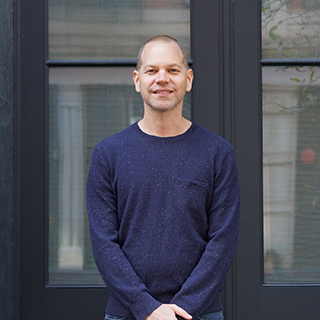
Around 2014, my former company, onefinestay, realized the need to diversify its customer acquisition strategy away from relying solely on paid search. We set out to develop a proper multichannel distribution strategy.
The first attempt was to sell our product through OTAs. Booking.com and Hotels.com promised volume and channel diversification. The cost of distribution was high—approximately 25%—but the allure of reaching new customers was too good to pass up.
Right around the same time, travel agents also started contacting us, proactively, because they'd heard great things about onefinestay from their clients. They wanted to know: would we pay commissions?
"How much?" we asked.
"10%" was the most common reply.
"Um...sure?"
The contrast to the OTAs was stark.
For many travel brands—especially the less established, and the more boutique ones, those without "revenue managers" or large marketing departments or loyalty programs—loaded distribution costs through OTAs and direct acquisition easily exceed 30%.
Our conversations with travel agents left us with the idea that maybe there's another way. One where distribution costs could be significantly lower, combined with a massively reduced in-house technical burden, AND the benefit of a real human who's already a brand advocate in your corner.
It was a revelation.
Interested in learning how to be a Fora travel advisor? Learn more & sign up to become an advisor today.
Travel agents still exist?
Like many people in their 30s and 40s, I hadn't quite appreciated that travel agents still existed. My traveling life began with guidebooks, followed by the rise of TripAdvisor and self-booking platforms.
And then, a few years after agents started getting in touch with us, and still very much a travel agent industry newbie, I attended my first Virtuoso Travel Week—the largest industry conference for travel agencies.
I didn't know what to expect. I didn't know that Virtuoso Travel Week was the only week of the year the Bellagio staff couldn't take vacation. Or that the conference would soon grow to be so big that it would overtake multiple hotels.
I was fascinated by this, and learned many surprising things about the travel agent industry in the ensuing years:
Agencies are still a mega-spend category, approaching $100bn in the US in 2019.
The industry was growing not shrinking, due in part to the early adoption of remote working norms for "ICs" (independent contractors) - a phenomenon that's been referred to as the "IC-ification of the industry". Already in 2019, an estimated 60% of travel agents in the US were remote ICs.
Using an agent wasn't more expensive for the consumer - it was actually cheaper than other channels. Agents have guaranteed price parity vs booking direct or through an OTA, and they offer the consumer benefits such as free breakfasts and room upgrades. Collaborating with an advisor on trip planning also helps ensure the right decisions are made on where to stay and what to do – truly maximizing a trip’s overall potential.
Using an agent was ALSO better for the travel providers, who benefit by lowering distribution costs - as well as harnessing the power of outsourced army of advocates who really know the product selling on their behalf.
Everyone wins.
I also learned that agents are worldly and interesting - some of the warmest people I've come across in the professional world. They truly LOVE what they were selling - with an authenticity and passion so often absent from other vocational pursuits. And, for an armchair historian, these were my people—everyone knows so much about so many fascinating places and amazing on-the-ground experiences.
Do you, too, absolutely love travel? Learn more about how to turn your passion for travel into $$$ with Fora.
As I started to dig into the industry, I also learned first-hand the challenges travel agents faced:
Getting paid is hard and the payment cycles are brutal. Commissions are hard to track, and they roll in after the trip has happened - despite the work often happening 6-12 months ahead of this. And lots of changes, cancellations, postponements, and snafus can happen along the way, especially in the midst of a pandemic.
Commissions (e.g. pay) aren’t balanced or fair, or commensurate with value delivered. OTAs charge >20% AND compete against travel providers for customers, bidding up keywords to capture high intent traffic. Meanwhile, agents are actively building the brands of their favorite travel providers - and getting paid ~10% for their time and effort.
Agents are forced to leave money on the table due historical lack of technological efficiency that causes many agents to not put themselves out there proactively for quick and easy trips. This creates a self-fulfilling trap, where consumers don't think of advisors for more straightforward travel - even though they should - and too often relegate agents to "special occasion" travel only e.g., honeymoons. Instead of a far more fulfilling overall travel advisory relationship.
These challenges are in part why innovation for agencies is so hard - there's not enough reliability or regularity of cash flow to make bolder investments in tech, systems and travel provider databases beyond the standard consortia offerings. It's also why agencies can only properly support 'producers' today, rather than the longer tail of everyone passionate about travel but looking for something in-between a side hustle and a full-time job.
Interested in learning how to be a Fora travel advisor? Learn more & sign up to become an advisor today.
A better equation in travel
It seemed that there was a unique opportunity to do something about this, creating a new equation in travel for the modern era, leveraging technology and new ways of thinking.
So we decided to create Fora.
We believe there’s never been a better time to build a meaningful, lasting enterprise in travel - and one that realigns travel providers, travel advisors and entrepreneurs, and travelers themselves.
We want to provide meaningful, high quality and fun work for 100,000 travel entrepreneurs.
To look great, flex their expertise, and access modern technology and marketing tools.
To welcome anyone and everyone passionate about travel to earn money creating and selling travel experiences.
So this is our call to arms.
For advisors & travel entrepreneurs - you deserve a modern, fully integrated platform with branding, marketing, communications, and commission tracking tools to enable you to grow your business and operate efficiently. What if you could communicate your uniquely deep and specific knowledge to the world, generate new relationships outside of your own personal network, work when you want, and earn income commensurate with value delivered? We want to make a Fora travel advisor genuinely the best job in the world - flexible, fairly compensated, tech-enabled, fun, and social.
For travel providers - hotels, bnbs, tour guides, vacation homeowners, DMCs who operate with care and hospitality, and provide exceptional customer experiences - you deserve to rise above. A travel meritocracy—not winning by technical competence in the direct-to-consumer marketing or OTA game, or by being a consortia-insider. We want to help your uniqueness to shine. And to deliver you high quality customers and insightful data at scale - to allow you to focus on your customers.
For consumers- you deserve better trips AND better value than what would be possible doing the work on your own. An experience that goes far beyond standard 'agent amenities' common in the agency world—a truly curated and personalized trip, built for you and your specific group and style, where to go, where to stay (and not to stay), and what do once you are there—all with a trusted friend on hand.
Follow along on our journey
We'd love to invite you along. Become an advisor today.
Follow us on Instagram @hellofora
We're always recruiting and hiring! See open roles at Fora.

